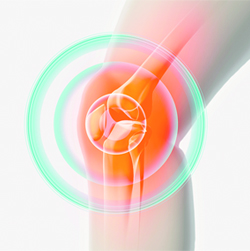 What is a clinical research study?
What is a clinical research study?
A clinical research study, or clinical trial, is a form of medical research that tests new developments in preventing, detecting or treating a disease. (1) It is also a scientific method used to find answers to difficult health questions. (1)
Why is clinical research done?
Clinical research is vital for developing new or improved drugs, treatments, surgical procedures or medical devices, and provides a method of changing the way we treat and cure disease. (2) It also provides hope for many people with an illness or disease to find better treatments. Without clinical research, we wouldn’t know which medication can decrease blood pressure, how to control someone’s diabetes, or which prosthetic device is best used for running a marathon.
Why should I participate in clinical research?
Research studies are highly dependent on volunteers to function properly. People participate for a variety of personal reasons. Some healthy people volunteer to help other people in the future and to advance science. Some people with an illness or disease want to help others, but they also have the opportunity to possibly receive the most advanced treatment and get additional care. (2) Volunteers are needed to participate in research studies to assist physicians and researchers in obtaining information and providing feedback regarding the medication, device or disease.
It is important to know that there are many protections and safeguards in place for patients who participate in the clinical research process. Any medical research facility must have an Institutional Review Board (IRB) to ensure the safety, rights and welfare of all participants. They must also confirm that any risks related to the study are minimized and outweighed by potential benefits. (3) The IRB must review and approve every new study before it begins, and monitor the progression of the study until it is complete.
What are the benefits?
Participation in a clinical trial could provide a volunteer access to new treatments that are not yet available to the general public. If the new treatment shows promise to work, you might be one of the first people to benefit from it. (4) If you are participating in a clinical research study and don’t receive the experimental treatment or drug, you can still receive care for your condition and have the support of a team of healthcare providers who will monitor you closely. (4)
How do I know if I might qualify?
Each research study requires certain criteria for participation and volunteers are screened to make sure they are a good candidate for the study. The study protocol / study guidelines are reviewed with the volunteer, and an informed consent is signed. The informed consent provides details regarding the study, including length of study, number of study visits, potential benefits and or risks involved. It also details how to withdraw from the study should the subject decide to do so, since all studies are operated on a volunteer basis. Once a volunteer has been enrolled, they then become a subject and are identified by a unique subject number to maintain their privacy.
What is Osteoarthritis (OA)?
OA occurs when the top layer of cartilage, the slippery tissue that covers the ends of the bones in a joint and helps absorb the shock of movement, breaks down and wears away. As cartilage breaks down, the level of inflammatory cytokines, a small protein molecule in the blood, rises causing increased breakdown of cartilage. (5) Currently, diet, exercise, and weight management, along with pain medications, massage, and supplements are ways to manage OA. Doctors may also treat with cortisone injections or other types of natural biologics. However, another option would be to participate in an investigational research study for OA.
Where can I find an OA study?
One such study called the PROGRESS IV clinical trial, sponsored by Zimmer Biomet, is currently being conducted at the Florida Hospital Orthopaedic Institute. The trial is investigating a device called the nSTRIDE APS Kit for people who have osteoarthritis (OA) in one knee. APS stands for autologous protein solution. An autologous solution is one for which the donor and recipient are the same person. The autologous protein solution being prepared with the nSTRIDE APS Kit for the PROGRESS IV clinical trial is a concentrated solution of proteins and growth factors prepared from a small sample of your own blood. The goal of the PROGRESS IV clinical trial is to evaluate the safety and clinical effectiveness of a protein solution prepared with the nSTRIDE APS Kit from a small sample of your own blood. The trial will focus on people with osteoarthritis (OA) in one knee, and will study the potential to alleviate their pain, restore their knee function and possibly have the tissue inside the joint repair itself by using an autologous injectable treatment, instead of pharmaceuticals or surgery.
The study has inclusion and exclusion criteria that must be met in order to qualify for participation. Conditions, other than OS, that affect the ability to ambulate or other untreated joint injuries may exclude patients from the study. Eligible patients are enrolled and randomly selected with a 50/50 chance to receive the APS treatment or saline.
For anyone who does not meet the criteria for the study, Dr. Cole’s practice will work with them to find alternative treatment options for managing their osteoarthritis. People may or may not benefit from taking part in the trial, but information learned in the study may help patients with osteoarthritis in the future.
How can I get more information about this study?
For further information regarding the study, or to determine if you meet eligibility criteria text 1KNEE to the number 87888, call (773) 313-3077, or visit www.zimmerbiomet.com/nstridetrial.
Dr. J. Dean Cole specializes in orthopaedic traumatology and joint replacements at the Florida Hospital Orthopaedic Institute Fracture Care Center. For more information, go to www.FractureCareCenter.com
or call 407-895-8890.
1. “Frequently Asked Questions About Clinical Research.” National Human Genome Research Institute, www.genome.gov/10000771/. Accessed 03 November 2017.
2. “Why Should I Participate in a Clinical Trial?” National Institute of Health, https://www.nih.gov/health-information/nih-clinical-research-trials-you/why-should-i-participate-clinical-trial. Accessed 03 November 2017.
3. “NIH Clinical Research Trials and You.” www.nih.gov/health-information/nih-clinical-research-trials-you/basics. Accessed 03 November 2017.
4. “What are the Possible Benefits and Risks of Clinical Trials?” National Heart, Lung and Blood Institute, www.nhlbi.nih.gov/studies/clinicaltrials/benefitsrisks. Accessed 03 November 2017.
5. Goldring MB, et al. Defining the roles of inflammatory and anabolic cytokines in cartilage metabolism. Ann Rheum Dis. 2008; 67: iii75-iii82.
Check Also
Breakthrough in Neuropathy Treatment: How Summus Laser Therapy Offers Hope for Nerve Pain Sufferers
Neuropathy is a debilitating condition that affects millions of people worldwide, causing chronic pain, numbness, …
 Central Florida Health and Wellness Magazine Health and Wellness Articles of the Villages
Central Florida Health and Wellness Magazine Health and Wellness Articles of the Villages



